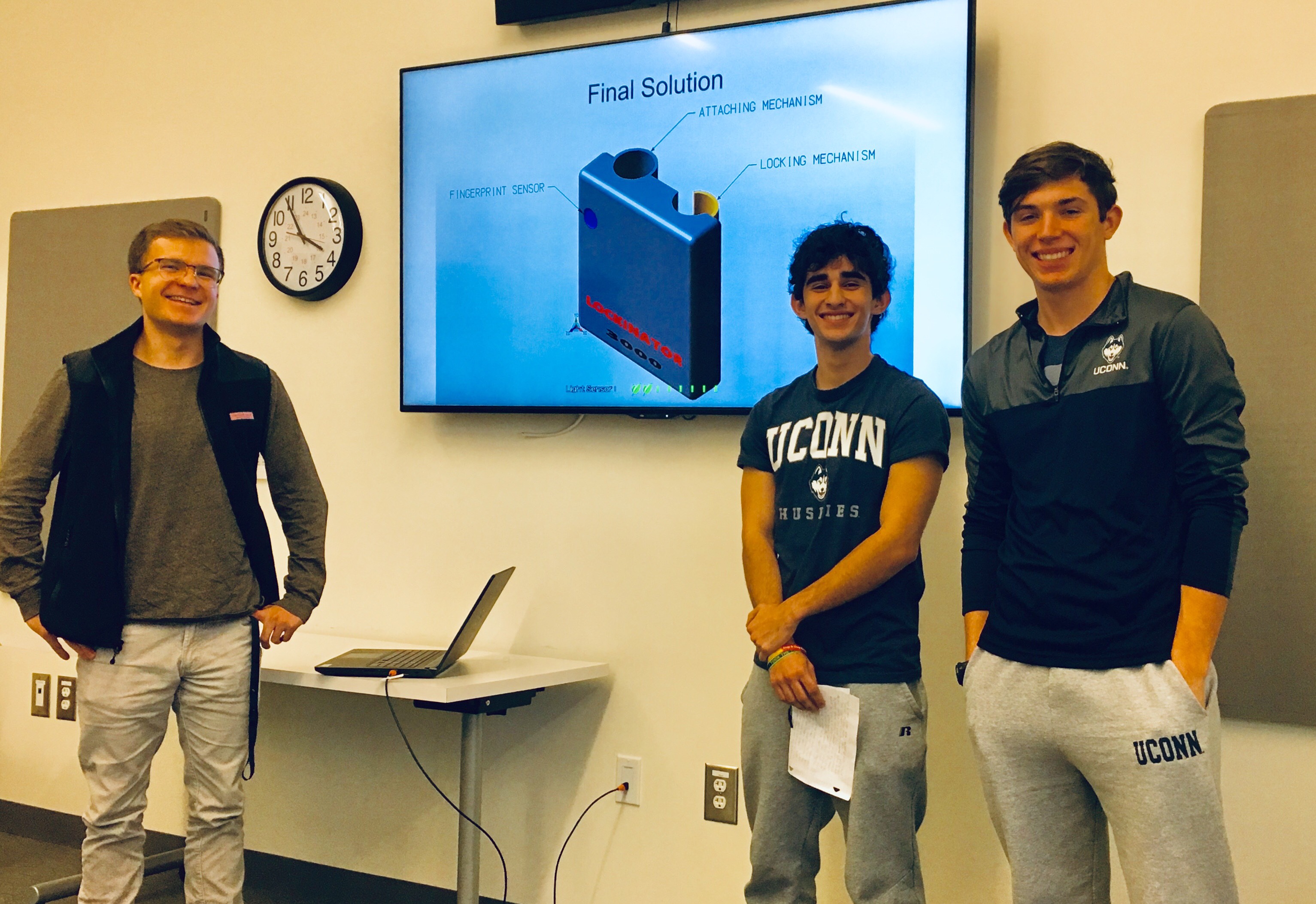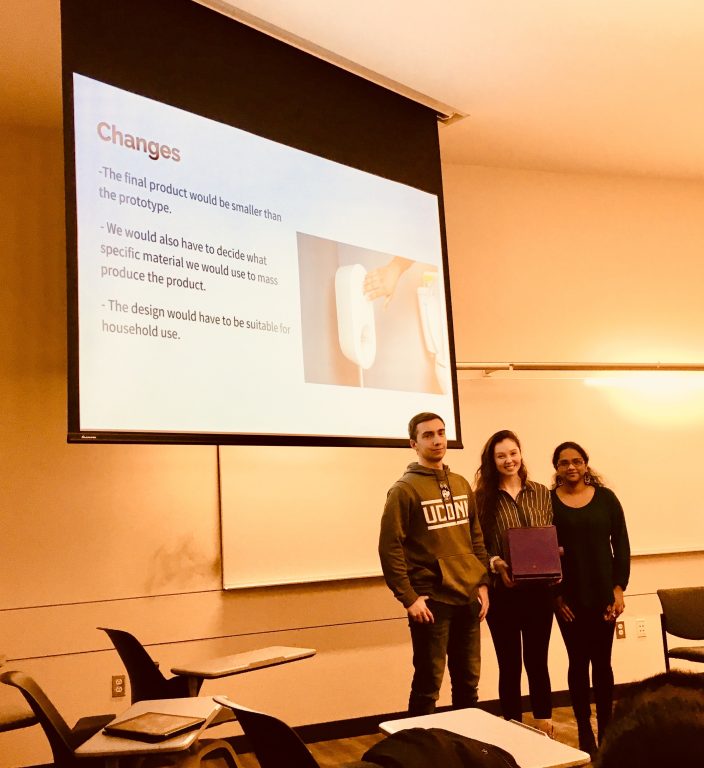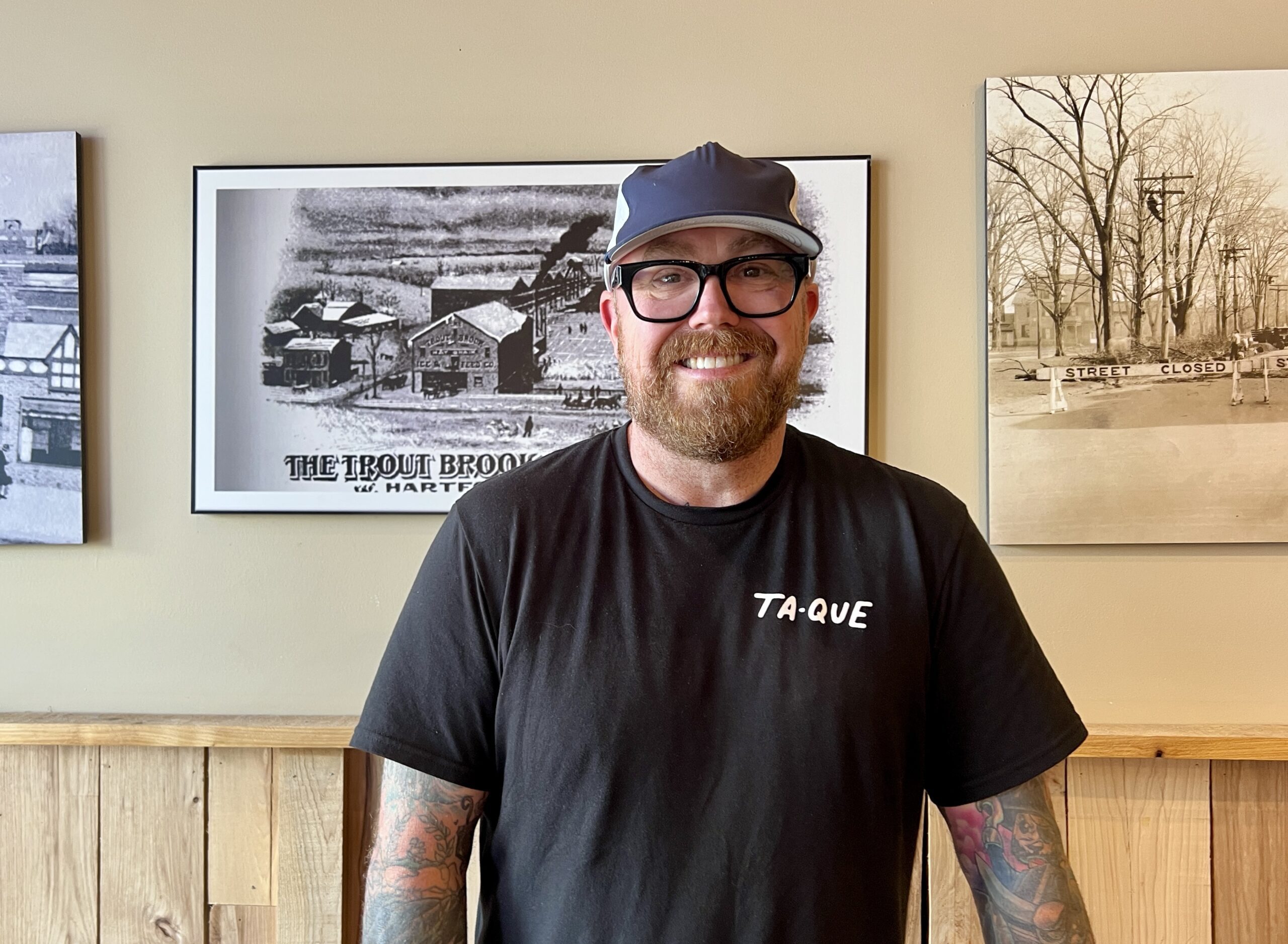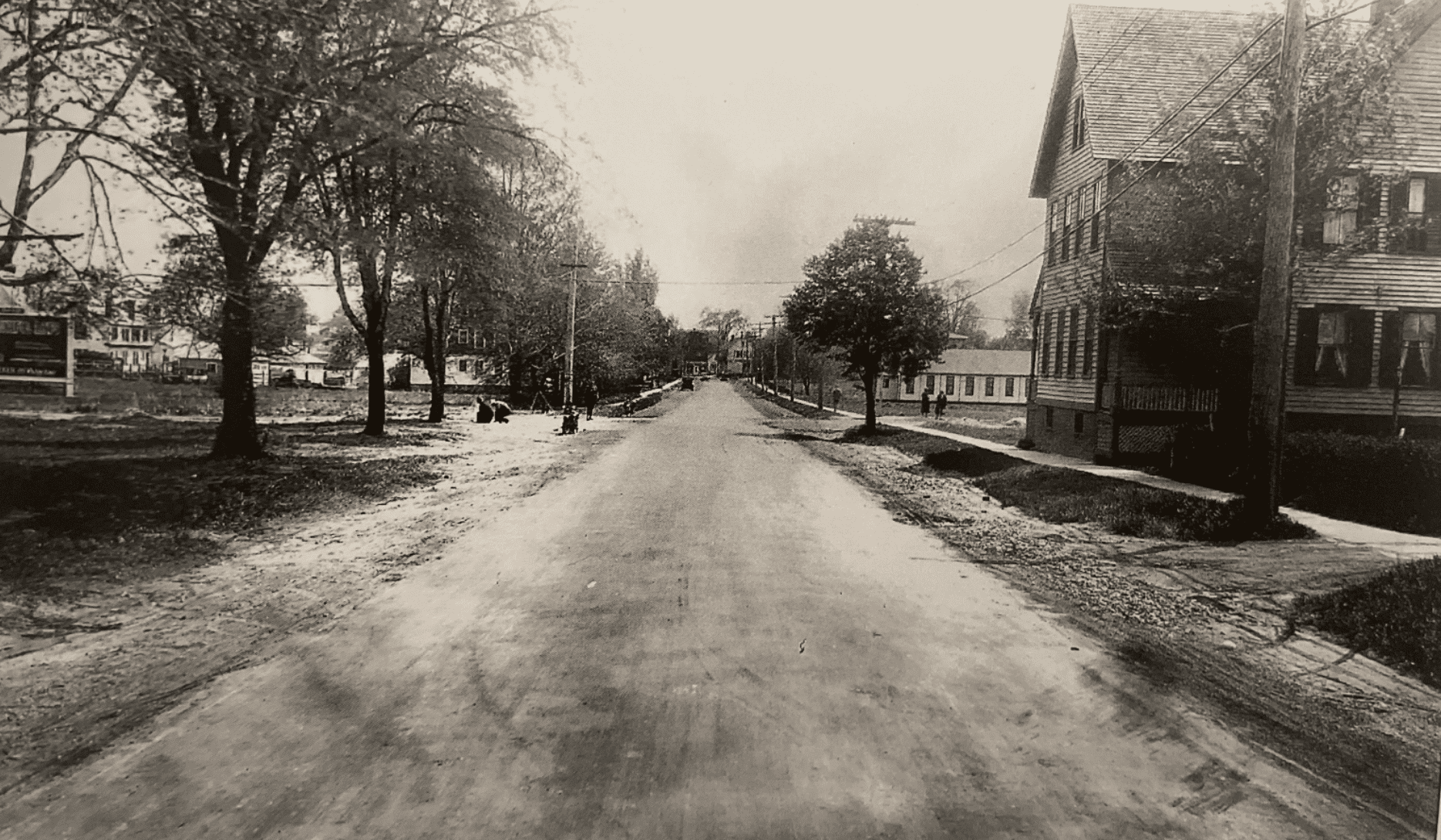West Hartford Resident Assists UConn Engineering Students Develop Technology for People with Autism

Audio By Carbonatix

Uconn Engineering students design devices for people with severe autism. Courtesy photo
Darlene Borré, a West Hartford resident and autism advocate, is helping Uconn students ‘engineer a more compassionate world’ by designing devices for people with severe autism.

SubmittedJ
The freshmen engineering students at the University of Connecticut started their first week at Uconn with a semester project: learn about autism and create a design that will give someone a better life.
Last summer, Associate Dean Daniel Burkey, Ph.D, was looking into possible projects for his students that would help connect them to their community here in Connecticut. He wanted to show them the impact of design on real people.
Julia Yakovich of UConn’s Service Learning Department directed him to local autism advocate and West Hartford resident Darlene Borré. When Professor Burkey learned about the day-to-day issues faced by individuals and families coping with severe autism, he knew his students could make a difference.
Approximately one third of people with autism remain nonverbal. People with severe autism require constant care and although you might hear about autism, you rarely hear about this type of autism. Of the research dollars invested in autism, significantly less is dedicated to severe autism, despite the level of need in this population.
At the beginning of the fall 2018 semester, Borré shared her personal experiences with severe autism with Burkey and his class. Her son, Ben, is a nonverbal teenager with autism. Ben uses some technology to assist him with his day-to-day life. For example, he has an iPad to communicate with a special picture communication app called Proloquo2Go. While Ben cannot write or type, some rare people with severe autism are able to type and explain what they are going through.
Although each individual is uniquely impacted by autism, Borré said she learns from their writings and experiences. Borré has observed that people with autism will often get up suddenly and walk around. She learned that some people feel like their legs are on fire and that there are thousands of ants crawling on them. They need to move and sometimes feel they are trapped in a foreign body.
Imagine feeling like this and not being able to communicate it.
Borré has also learned that when a person’s sensory system is so overloaded they try to self-soothe by stimming. Stimming refers to self-stimulating actions like rocking, hand shaking, or even screaming and yelling as a way of blocking out other sounds.
A person with autism can retreat into their own world as a means to escape the external world. Families typically try to set up sensory friendly areas of their homes. But the world isn’t set up that way. Even the job sites and day programs set up for people with disabilities were not developed to accommodate the needs of individuals with the type of behaviors displayed by individuals with severe autism.
The students heard about the daily struggles that families face and their collective fear for the future. They learned about how little control and choice a person with severe autism has over their own life. The students learned about the challenges faced by people with severe autism relating to impulse control and safety issues.
Some safety examples include: touching a hot stove because they are hungry; going through a refrigerator with jars falling and breaking; obsessions with water that lead to drowning (which is the no. 1 killer of children with autism); and how much they depend on their family/support team to help navigate their daily life.
“Because we are the autism you don’t hear about, there is not a lot of attention to developing new ideas to help with our day to day lives. Our autism is messy, relentless, lonely, expensive, and sometimes overwhelming. We are fortunate to have help but many families do not,” Borré said.
The students spent a full semester working on ideas to make life easier and better. Their ideas ranged from iPad controlled sensory lights to fingerprint locks on door for safety to easier, more durable remote controls, to ideas about toilet paper dispensers – all designed to make life better, a little easier. The insights into innovation showed by the students was amazing considering that before this fall most of these students had no idea what severe autism was or how it impacts a family. They were visibly moved to be part of a solution.
One student team noted, “We were researching fingerprint locks to help with people prone to wandering or to prevent injury from food impulse control issues. We found that the products offered to the disability community are marked up sometimes 10 times what they would cost to make. We couldn’t believe that families who are already spending so much more than the typical family, are being taken advantage of. We got into engineering to make life better. We think we could make a less expensive and better design.”
Another student became very emotional as he shared he too has a family member with autism and how he related to the families’ struggles. The students are determined to use the knowledge and expertise they receive at Uconn to improve the lives of people with autism.
Borré would like to make these innovative ideas a reality and work on new ideas. She founded the WeHa Unified Business Club (www.wehaunified.com) which pairs teens with and without disabilities in high school to create Shark Tank type small businesses. The goal is to refine and grow these businesses with community support during the high school years. At graduation, the students with disabilities will have a viable small business. But they need a place to go.
Borré hopes to partner with colleges and pair college student interns with the graduates at Maker Spaces at each college. Business students could help develop and grow the small, community businesses. Psychology, education and occupational therapy students could improve the work sites to prolong the work day and improve vocational skills. At the same time, the students would learn about and improve the lives of the people in their community that are in danger of being forgotten.
Like what you see here? Click here to subscribe to We-Ha’s newsletter so you’ll always be in the know about what’s happening in West Hartford!




[…] read the original story, please visit source site (adsbygoogle = window.adsbygoogle || […]